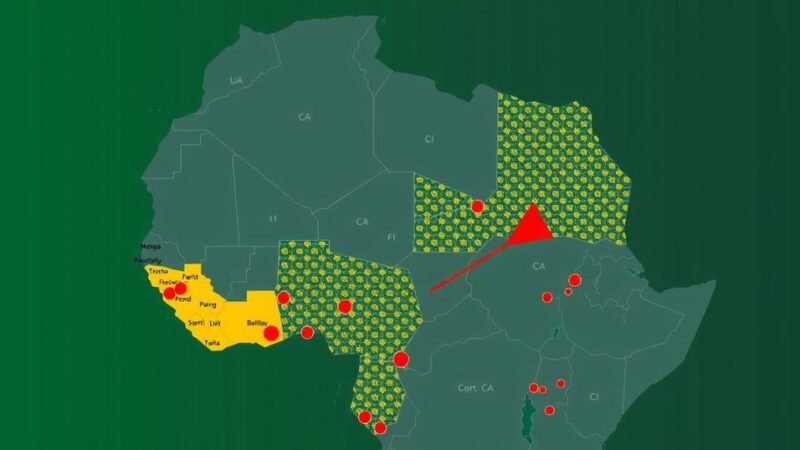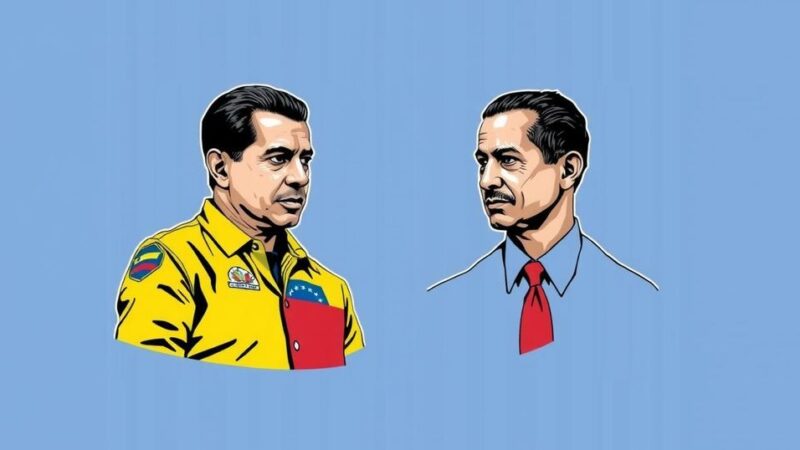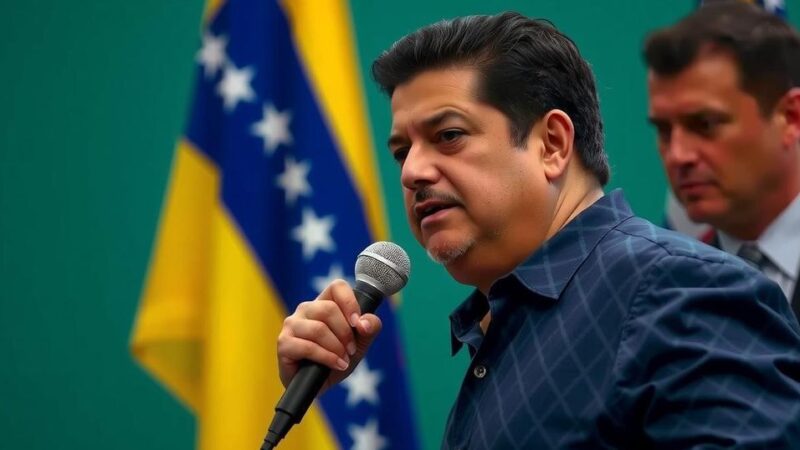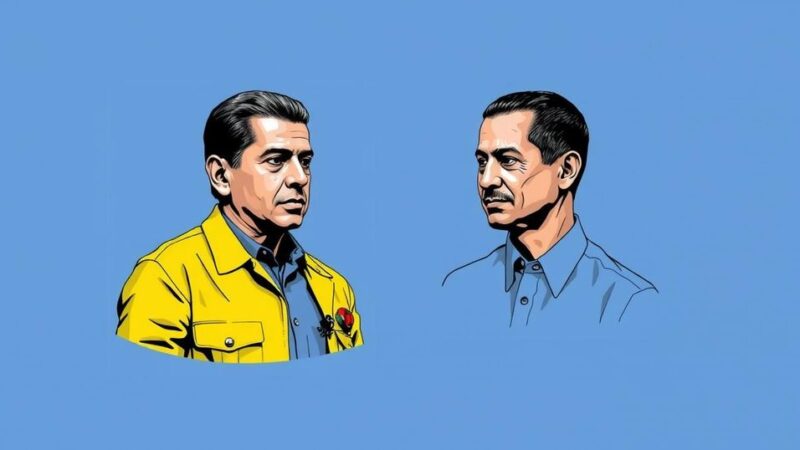The U.S. has sanctioned over 20 officials aligned with Maduro to pressure him to accept July’s election results. These sanctions coincide with recognizing Edmundo Gonzalez as the president-elect, aiming to promote democracy in Venezuela.
The United States has enacted new sanctions against more than 20 officials associated with Venezuelan President Nicolas Maduro, aimed at compelling him to acknowledge the election outcomes from July. This initiative coincides with the four-month anniversary of the election, wherein the U.S. authorities are optimistic that these sanctions will encourage some Venezuelan officials to distance themselves from Maduro, thereby fostering a democratic transition within the nation. Targeted individuals include high-ranking military and intelligence figures, notably Maduro’s newly appointed chief of staff and communication minister.
The sanctions mandate comes on the heels of the U.S. formally recognizing Edmundo Gonzalez, the opposition leader, as Venezuela’s president-elect after the contentious elections. Secretary of State Antony Blinken highlighted this recognition, underscoring the importance of respecting the electoral will of the Venezuelan populace. While extensive oil sanctions remain under continuous review, officials stressed that these measures are part of the Biden administration’s broader strategy to promote democracy and hold the Maduro regime accountable for its repressive actions.
Since 2017, numerous Venezuelan cabinet members have faced sanctions from the U.S. Treasury, with President Maduro himself being subject to such actions since July 31, 2017. The U.S. Department of Justice has charged Maduro with serious crimes, including drug trafficking and terrorism, and is currently offering a substantial reward for information that could lead to his arrest. The U.S. government remains committed to ensuring accountability and advancing democratic ideals in Venezuela, despite the impending transition to a new administration in January.
The political landscape in Venezuela remains contentious, particularly following the disputed presidential election held on July 28. Nicolas Maduro has governed with authoritarian measures and is widely criticized for undermining democratic processes. The U.S. government has maintained a series of sanctions against Maduro and his officials, aimed at curbing human rights violations and promoting democratic governance. This recent round of sanctions signifies a continued U.S. approach to increase pressure on Maduro’s regime, coinciding with international recognition of the opposition leadership’s electoral victory.
In summary, the U.S. has implemented targeted sanctions against Maduro-aligned officials to apply increased pressure on the Venezuelan government to respect electoral outcomes. These sanctions represent a strategic component of the Biden administration’s commitment to support democracy and hold authoritarian regimes accountable. With the acknowledgment of Edmundo Gonzalez as president-elect, the international community is encapsulating hope for a transition towards democratic governance in Venezuela.
Original Source: www.cnn.com






